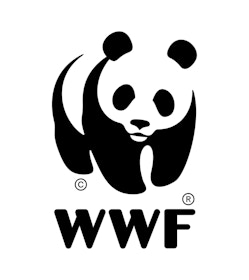- PACT members saved over 12 million pieces of single-use plastic packaging and items saved as part of commitment to reduce their plastic use.
- Over 1 million pieces of plastic utensils are saved per week as part of a food delivery industry pledge.
- This is part of WWF’s PACT (Plastic ACTion) initiative which aims to achieve the vision of No Plastics in Nature by 2030.
The World Wide Fund for Nature (WWF) Singapore today released its PACT (Plastic Action) Impact report on the progress of local companies and industries towards reducing their use of plastics and towards a circular economy. In the past year, 12 million pieces of plastic packaging and items have been reduced by members from PACT. Key industries have also taken collective action to eliminate plastic use on a large scale.
Launched in 2018, PACT (Plastic ACTion), PACT provides businesses with guidance and resources to help reduce their plastic consumption. To date, 22 companies have signed individual commitments and have set the standard for a meaningful plastic action, paving the way to lead their peers towards a circular economy and contributing to Singapore’s zero waste masterplan for plastics in their industries.
Said Mr Kim Stengert, Chief, Strategic Communication and External Relations, WWF-Singapore, “Through extensive commitments, research and pilots, we are glad to see how PACT has helped companies overcome their challenges and reduce their overall plastics use significantly. WWF-Singapore provides guidance to companies and assists to conduct pilot testing for new solutions. In addition, we gather industry peers to share their experiences, best practices, brainstorm and test plastic reduction solutions for their business models. Going forward, we hope to see more businesses coming onboard PACT to create a systemic change for the future.”
Individual company commitments
Through PACT, WWF-Singapore works with companies spanning five key industries — e-commerce, food and beverage, hospitality, manufacturing and retail property management. By taking a collaborative and industry-led approach, PACT commitments are comprehensive plans with time bound goals aimed at reducing the use of plastics.
In the hospitality sector, Grand Hyatt Singapore’s PACT commitment includes eliminating plastic packaging across all 677 guest rooms, F&B services and meeting venues. To date, the hospitality giant saved a range of items including 120,000 cotton buds and 130,000 pieces of bin liners.
Said Sebastian Kern, Director of Food and Beverage, Grand Hyatt Singapore, “Most importantly, we must not get too caught up in prioritising short-term gains when moving towards a sustainable future, but to look at the long-term benefits — both financial and non-financial.”
Cloversoft — a homegrown manufacturing company has committed to reducing plastic packaging in their manufactured goods. This includes increasing the amount of recycled content in their packaging and products, seeking alternatives and eliminating bulk packaging bundles.
“It’s not always about one person making waves, but the ripple effect of multiple individuals that will enact the biggest change.” added Lynn Yeo, Co-founder of Cloversoft.
Lendlease joined PACT as the first retail property management company, embarking on a Waste in Retail Initiative with PACT to pilot innovative solutions and guide their industry towards reducing plastics and waste.
The first and largest healthy food chain in Asia — SaladStop! has committed to reducing front-of-house plastic packaging and consumer-facing items such as plastic cutlery, straws and stirrers. Consumers also played a huge role in its Borrow-Tree initiative which saved over one million bags.
Local e-commerce pet care store perromart reduced their tape usage by more than 500 kilometers ever since its commitment on redesigning their packaging guidelines.
In addition to individual commitments by companies, the PACT initiative brought entire industries together to take collective action to reduce plastic use. This amounted to over 300 F&B outlets phasing out straws, 30 million disposable utensils saved for food deliveries, and reduced single-use plastic bags from retail outlets.
To achieve the vision of No Plastics in Nature by 2030, PACT is working towards these goals:
- Elimination of all unnecessary plastics
- Reduction of at least 50 per cent of single-use plastics
- Support of a circular economy by moving to 100 per cent reusable or recyclable product or packaging design models
- Removal of plastics from nature by making a net positive impact
To learn more about WWF’s PACT (Plastic ACTion) initiative and to download the full report, visit the website:
For more information, please contact:
Hazel Xu, Assistant Manager, Media
WWF-Singapore
Email: hxu@wwf.sg, +65 9452 6803
Publish your content with EB Publishing
It's about who you reach. Get your news, events, jobs and thought leadership seen by those who matter to you.









